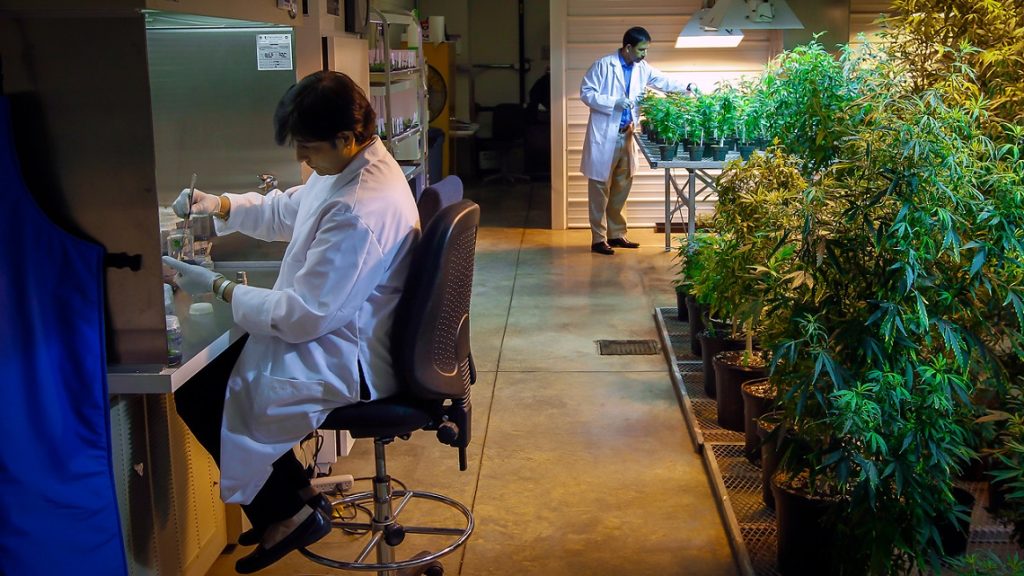
Huntington’s disease the effects of cannabis have not been proven
Disappointingly, a study by the University of Arizona found no improvement in Huntington’s disease sufferers during a clinical trial that used only cannabidiol, not THC or the full profile of cannabinoids.
However, research led by Dr. Javier Fernandez-Ruiz published in the Journal of Neuroscience Research studied the effects of both THC and CBD on Huntington’s disease. This study was not carried out on human patients but tested on rodents, and THC did show positive effects. In the human striatum (forebrain), CB1 receptors are the most common receptors for THC and Huntington’s patients have been shown to have reduced levels of CB1 receptors in this area. Researchers administered high doses of THC to CB1-impaired rodents to over-activate their reduced CB1 receptors. It was shown that THC improved their motor function, slowed the disease symptom progression, and improved the volume of their striatum.
Cannabinoids have been proven to reduce episodes of urinary incontinence
Cannabinoids have been shown to reduce incontinence episodes without affecting voiding in patients with multiple sclerosis. The study observed 630 patients who received either an oral administration of cannabis extract, THC, or a placebo. Those receiving the active cannabis treatments showed significant effects over the placebo. The findings demonstrated a clinical effect of medical cannabis on incontinence episodes in patients with MS.
Inflammatory Bowel Disease
Medically, inflammatory bowel disease (IBD) refers to a group of inflammatory conditions of the colon and small intestine:
Ulcerative colitis is an inflammation of the colon that produces ulceration of the inside wall. Its primary symptom is bloody, chronic diarrhea, often containing pus and mucus, and associated with abdominal pain and weight and appetite loss. This is a chronic illness with no known cure.
Crohn’s disease is an inflammation of the small and/or large intestine, with accompanying pain, cramping, tenderness, gas, fever, nausea, and diarrhea. Though usually mild, in serious cases bleeding may occur and may sometimes be massive. This is also a chronic illness with no known cure.
Proctitis is an inflammation of the rectum and is characterized by bloody stools, a frequent urge to defecate but the inability to do so, and sometimes diarrhea.
Beneficial effects of cannabis
The beneficial effects of cannabis treatment have been reported for appetite, pain, nausea, vomiting, fatigue, activity, and depression. Patients also reported that cannabis use resulted in weight gain, fewer stools per day, and less severe flare-ups. Patients not only report significant relief from their symptoms but are also able to reduce the amount of prescribed immunosuppressive medications.